Dentures vs. Full Mouth Implants! If you need dental restoration due to missing teeth, you’ll likely face the dilemma of choosing between these two options. But fear not; we’re here to help!
In this blog, we’ll break down everything you need to know about dentures and full mouth implants so that you can decide and restore your teeth and confidence.
Get ready for a head-to-head comparison of these popular dental solutions, and find out which one reigns supreme in the battle of Dentures vs. Full Mouth Implants!
Dentures Vs. Full Mouth Implants: What’s Right for Me?
What are Dentures?
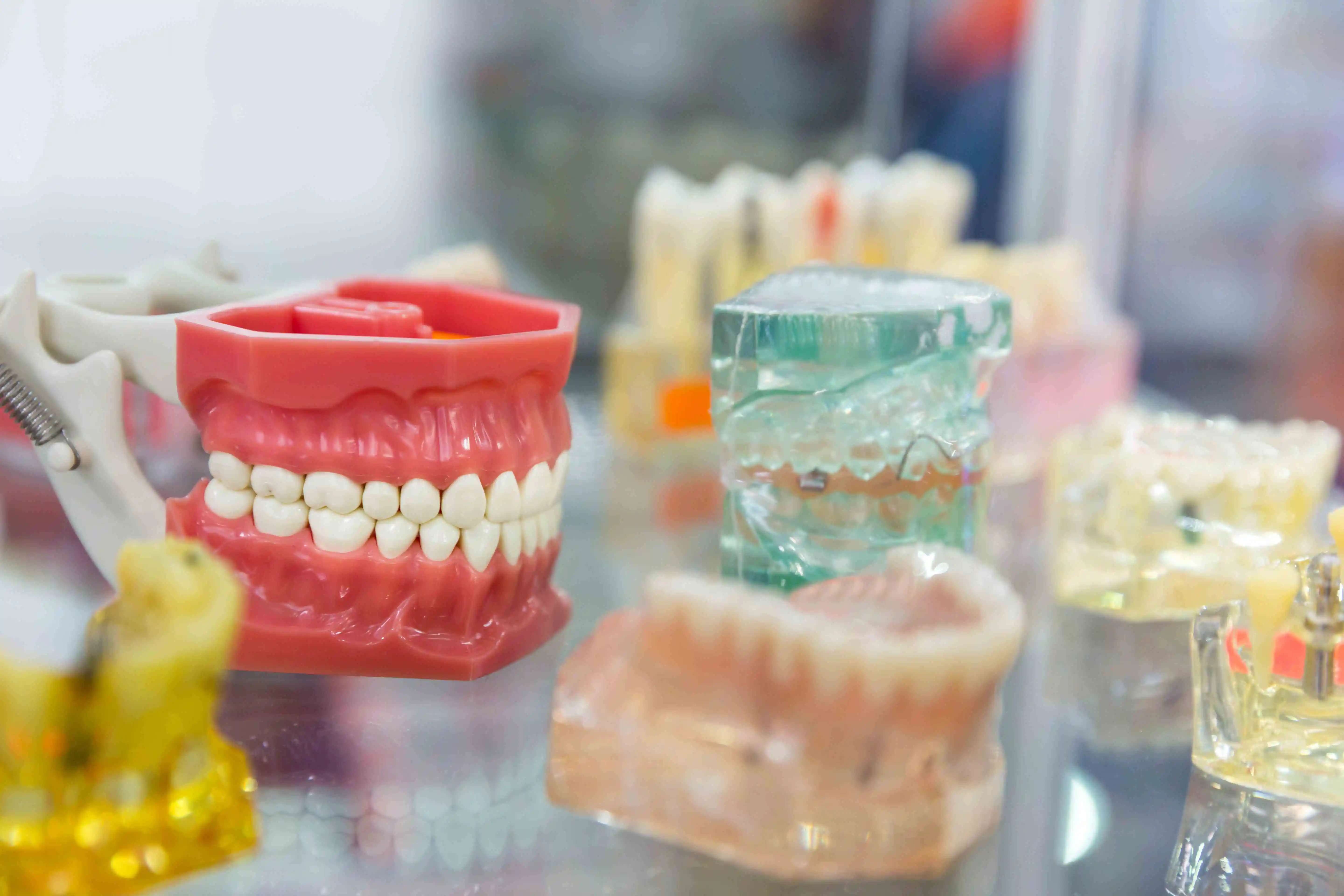
Dentures are removable prosthetic teeth that replace missing teeth and some gum tissue. They typically have a pink gum-colored acrylic base supporting the denture teeth. Some dentures may also have a lightweight metal framework for added strength and support.
Dentures provide a removable option for replacing missing teeth and gum tissue. Complete dentures are used when all teeth of an individual are missing, while partial dentures are used when some natural teeth remain. They are acrylic and may include a metal framework for added support.
Types of Dentures
-
Complete Dentures
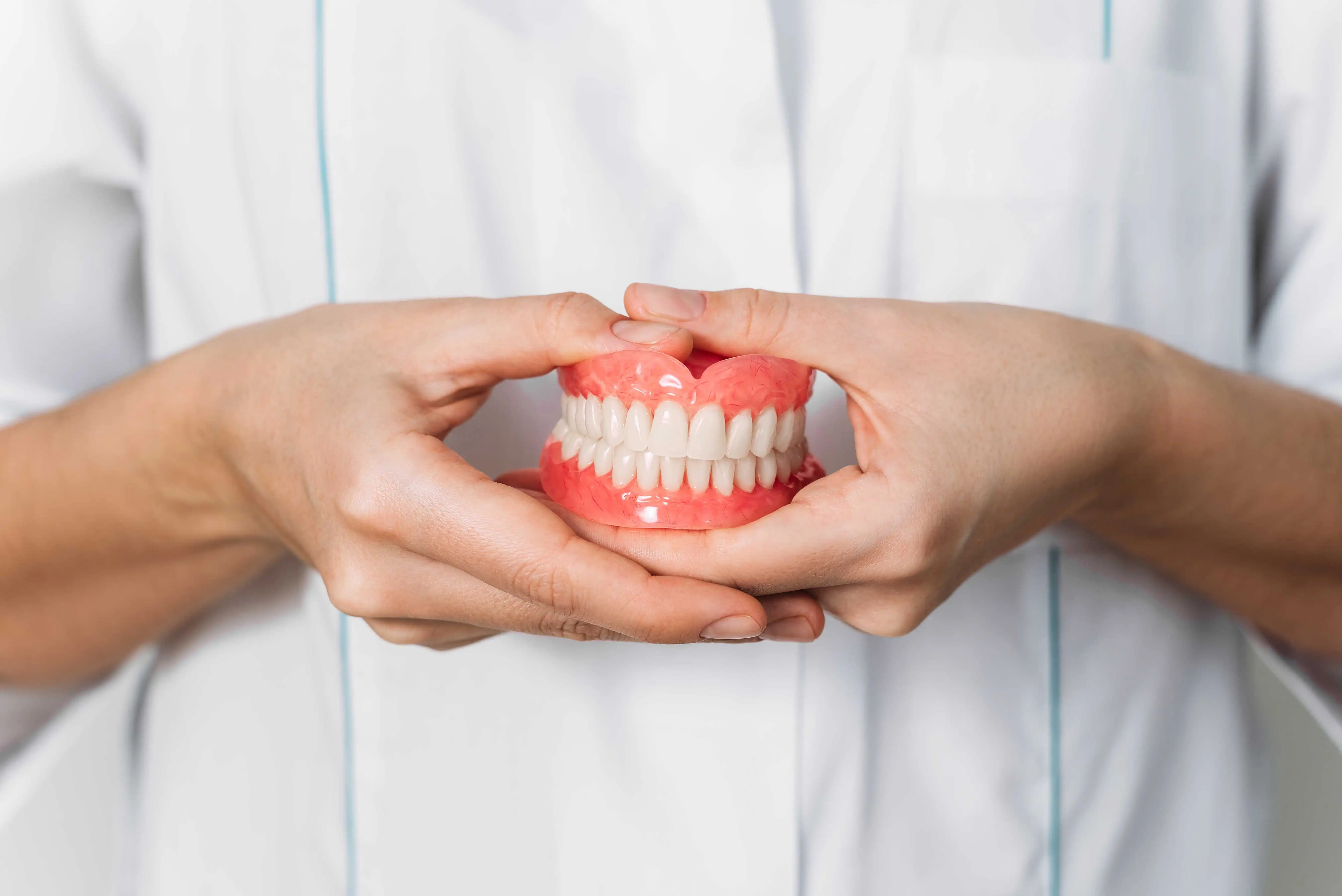
Also known as full dentures, these are used when all teeth in the lower or upper jaw, or both jaws, are missing. Complete dentures rest directly on the gums and are designed to replace the whole arch of teeth.
-
Partial Dentures
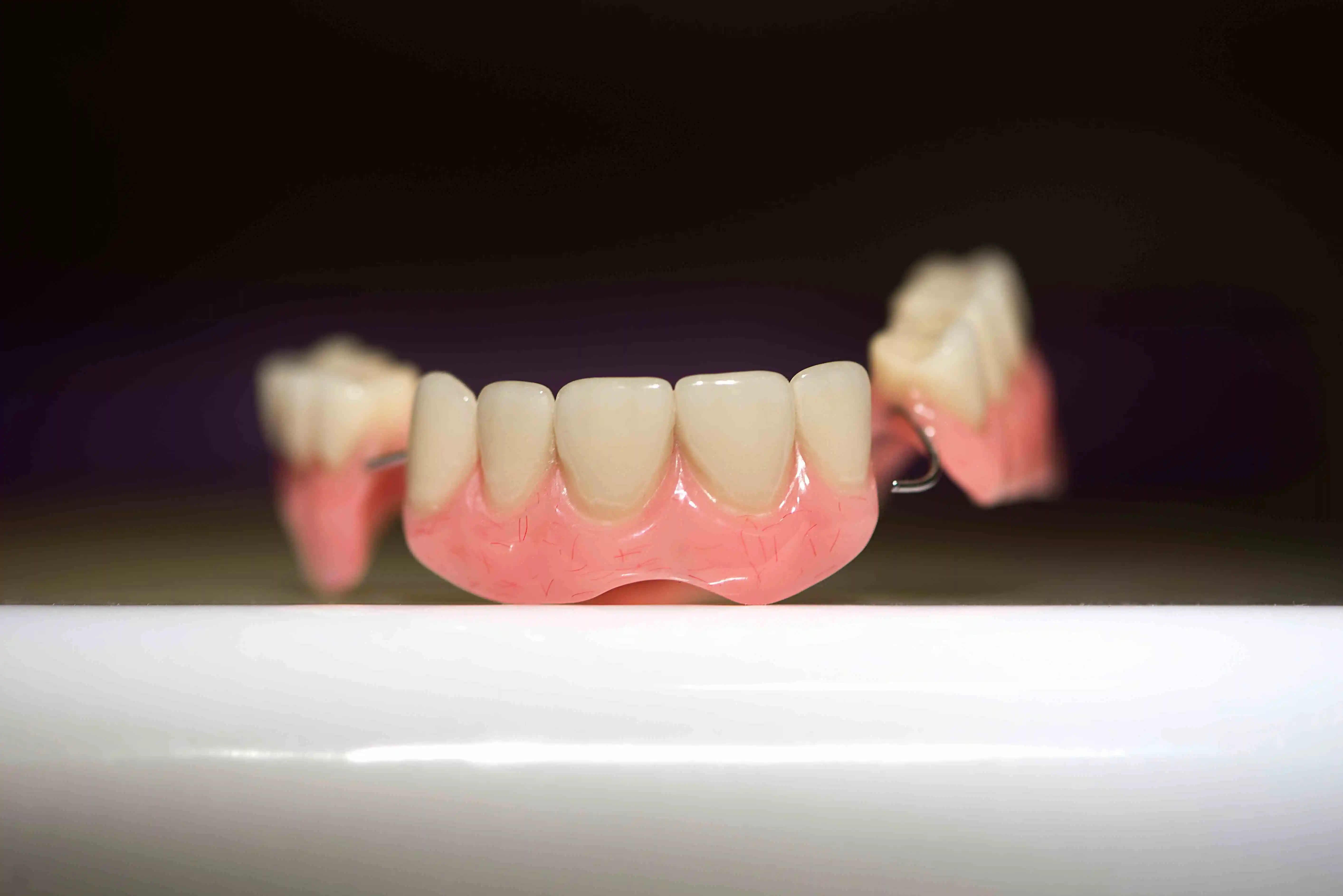
Partial dentures replace missing teeth when some natural teeth remain. They are supported by clasps that go around the existing teeth or by precision attachments that are fitted onto crowns. Partial dentures are used to fill in gaps in the smile and can be removed for cleaning.
-
Overdentures
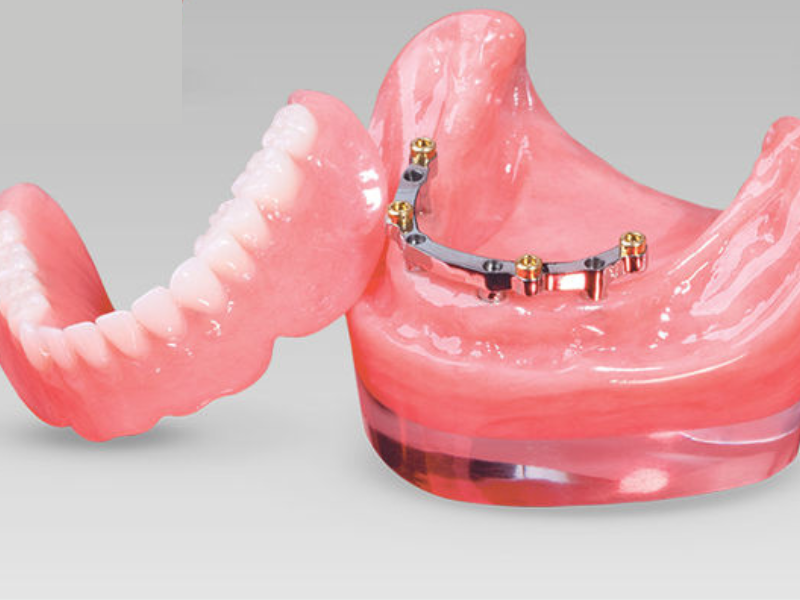
Overdentures are a type of denture designed to fit over a few remaining natural teeth or dental implants. Natural teeth or implants provide additional stability and support for the denture, making it more secure and comfortable.
-
Immediate Dentures

Immediate dentures are placed instantly after tooth extraction without waiting for the gum tissues to heal. They are often used as a temporary solution while the mouth is healing, and a more permanent denture can be made later. Immediate dentures can help patients avoid being without teeth during the healing process.
What are Full Mouth Implants?
Full mouth implants are a permanent tooth replacement option that involves placing artificial teeth on dental implants surgically inserted into the jawbone. The implants act as tooth roots and provide a sturdy foundation for artificial teeth. Full mouth implants are a more expensive and invasive option compared to dentures.
Types of Full Mouth Implants
-
All-on-4
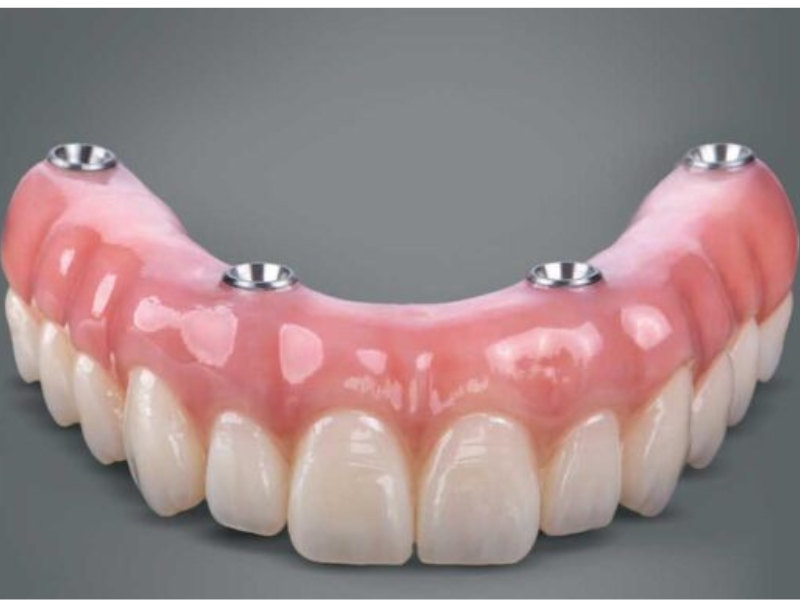
All-on-4 is a complete mouth implant treatment using four dental implants to support a fixed dental prosthesis that replaces all the teeth in the upper, lower, or sometimes both jaws.
The implants are strategically placed to provide maximum stability and support for the prosthesis, allowing patients to regain the entire arch of teeth with fewer implants than traditional methods.
-
All-on-6
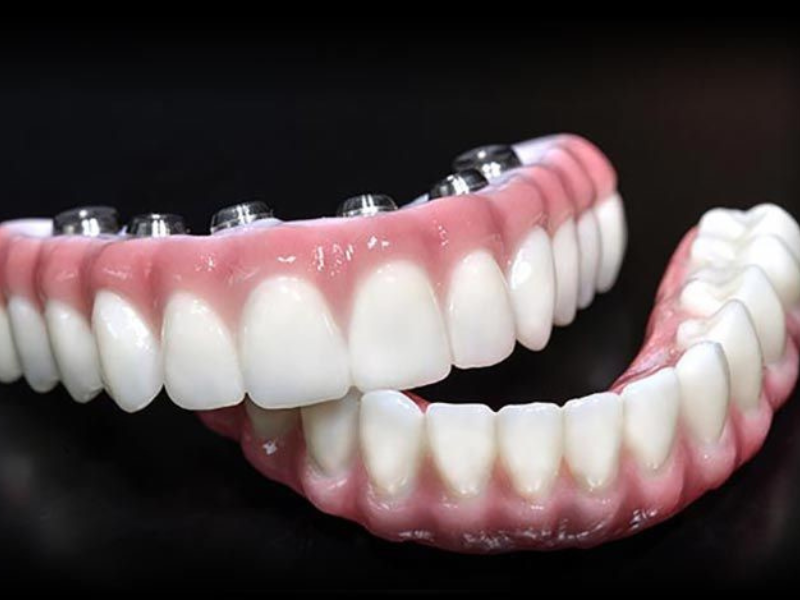
All-on-6 is similar to All-on-4 but uses six dental implants instead of four to support the fixed dental prosthesis.
This additional support may be recommended in cases where more stability and strength are needed, such as in patients with more significant bone loss or bite force.
-
Traditional Implants
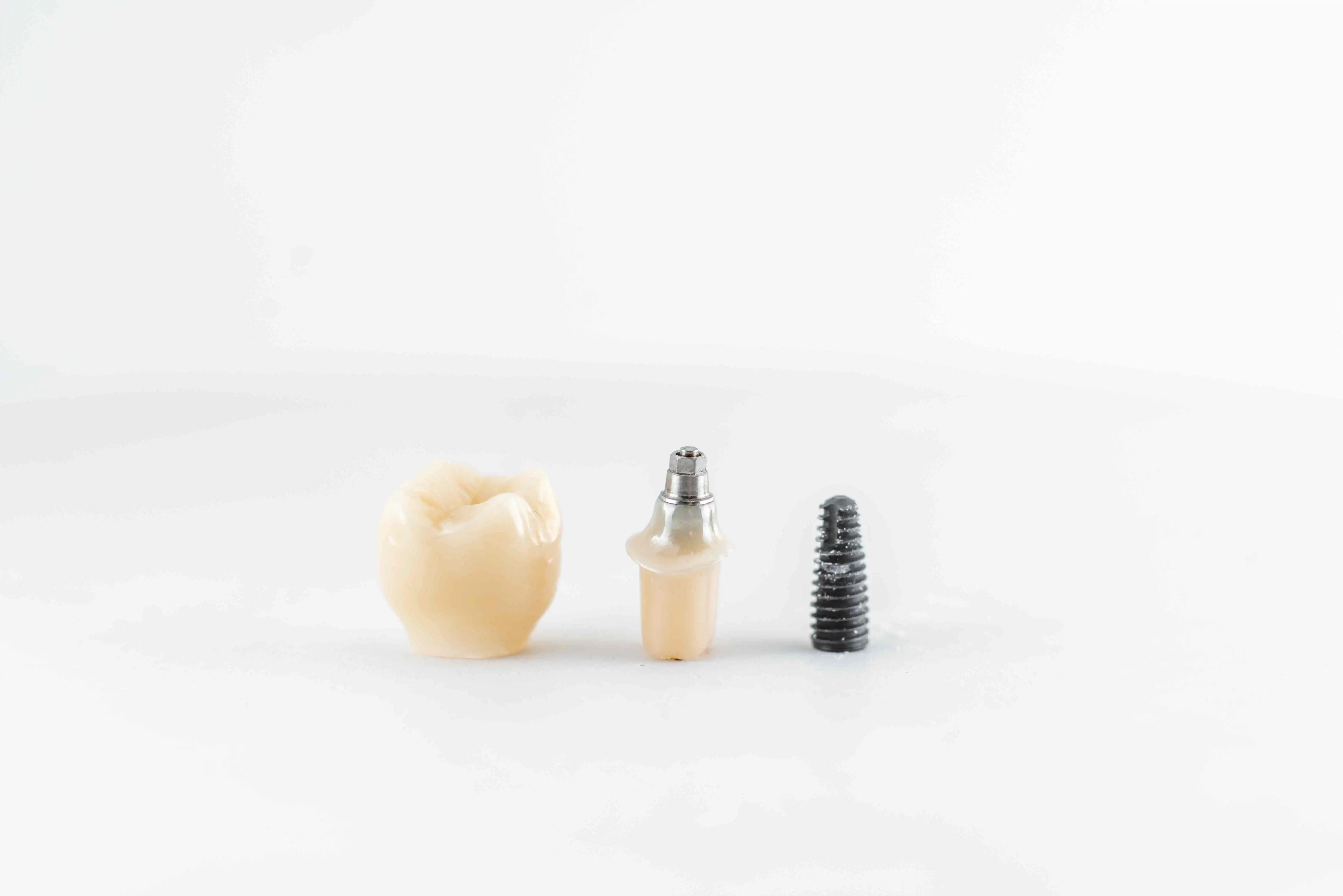
Traditional implants involve the placement of multiple dental implants, usually six to eight or more, throughout the jawbone to support individual dental crowns or bridges.
Your dental expert may use this method in cases where patients have adequate bone support and need multiple teeth in an entire arch but do not qualify for All-on-4 or All-on-6 due to specific factors such as bone quality or quantity.
Dentures Vs. Full Mouth Implants: An In-Depth Comparison
To help you decide, let’s compare dentures vs. full mouth implants based on various factors.
Functionality
Full mouth implants are known for their superior functionality compared to dentures. These implants are surgically placed into the jawbone, providing a stable and permanent solution for replacing teeth. They function like natural teeth, allowing normal chewing and speaking without restrictions.
On the other hand, dentures are removable and sit right on top of the gums and can sometimes slip or cause discomfort, making it challenging to eat certain foods and speak confidently.
Aesthetics
Full mouth implants are highly regarded for their natural appearance. They are custom-made to match the existing teeth’ shape, size, and color, providing a seamless blend with the rest of the smile.
Dentures, although they can be made to look natural, may sometimes give a different level of aesthetics, as they sit on top of the gums and can sometimes appear artificial.
Maintenance
Full mouth implants require similar care as natural teeth, including regular brushing, flossing, and dental check-ups.
In contrast, dentures demand additional upkeep as they must be removed and cleaned separately, often necessitating denture adhesives to keep them in place. If improperly cleaned, dentures can accumulate food particles and bacteria, resulting in bad breath and potential oral health problems.
Longevity
Full mouth implants are considered a long-term solution for tooth replacement, as they are anchored securely in the jawbone and can last for many years, even decades, with proper care.
Dentures, however, may need to be replaced or relined periodically due to wear and changes in the jawbone structure over time.
Comfort
Full mouth implants are typically more comfortable than dentures, as they are fixed in the jawbone and do not require any adhesives or removal for cleaning.
Conversely, dentures can sometimes cause sore spots, gum irritation, and discomfort, especially during the initial adjustment period.
Cost

Dentures are generally more affordable than full mouth implants, as the implant procedure involves surgical placement and may require additional components, such as abutments and crowns. Conversely, dentures are removable appliances, which can be more cost-effective for some patients.
The American Dental Association (ADA) estimates that the price of an implant per tooth falls within the range of $1,600 to $2,200, whereas on average, full mouth implants may cost between $25,000 – $35,000.
As per the ADA, the average cost for a complete set of upper dentures is slightly over $1,600, with full dentures for the lower jaw costing approximately the same.
Also, the cost of dental implants may vary, counting on factors such as the location of the dentist’s practice.
Pros and Cons of Dentures Vs. Full Mouth Implants: Weighing Your Options
Dentures |
| Pros: | Cons: |
|
|
Full Mouth Implants |
| Pros: | Cons: |
|
|
Dentures Vs. Full Mouth Implants: What to Opt for?
The choice between dentures vs. full mouth implants depends on oral health, bone condition, budget, and personal preferences. Full mouth implants may be better with healthy gums and sufficient jawbone density. However, dentures can be a suitable alternative if you have budget constraints or are not the right candidate for implants.
When deciding on your dental treatment, consider the following factors:
- Age: If you are 60 or younger and seeking a more permanent solution, dental implants may be suitable as they can last for several decades. On the other hand, older adults who prefer less invasive procedures may opt for dentures.
- Bone density: Dental implants require sufficient jawbone material for support. You may not be a good implant candidate if you have lost bone due to age, gum disease, or tooth loss. Bone grafting can be done, but it is more costly and complex.
- Function and feel: Dental implants may offer better comfort and chewing efficiency than dentures, as per a 2019 study. However, implant-supported overdentures, a combination of dentures and implants, may also provide satisfactory results.
- Hygiene: If you are unable or unwilling to commit to regular denture care, dental implants may be a better option as they require less maintenance, although they may be more expensive. Being honest about your ability to provide daily care for dentures is essential.
Note: Consult a qualified dental professional to determine the best treatment option for individual needs.
Conclusion
Restorative dental procedures are a personal decision. Both have pros and cons and the decision on which one to choose should be based on individual preferences and oral health. When considering your choices, it’s advisable to consult a dental expert to discuss your options and determine the best tooth replacement alternatives for you.
At Osseo Family Dental, we can provide valuable guidance, detailing the distinctions and assisting you in making the optimal decision between dentures vs. full mouth implants. Our team believes in providing you and your family with dental care that is seamless, efficient, and best fits your needs. You can request an appointment by dropping us your details or emailing us at info@osseofamilydental.com. See us and experience the positive impact we can have on your oral health.
